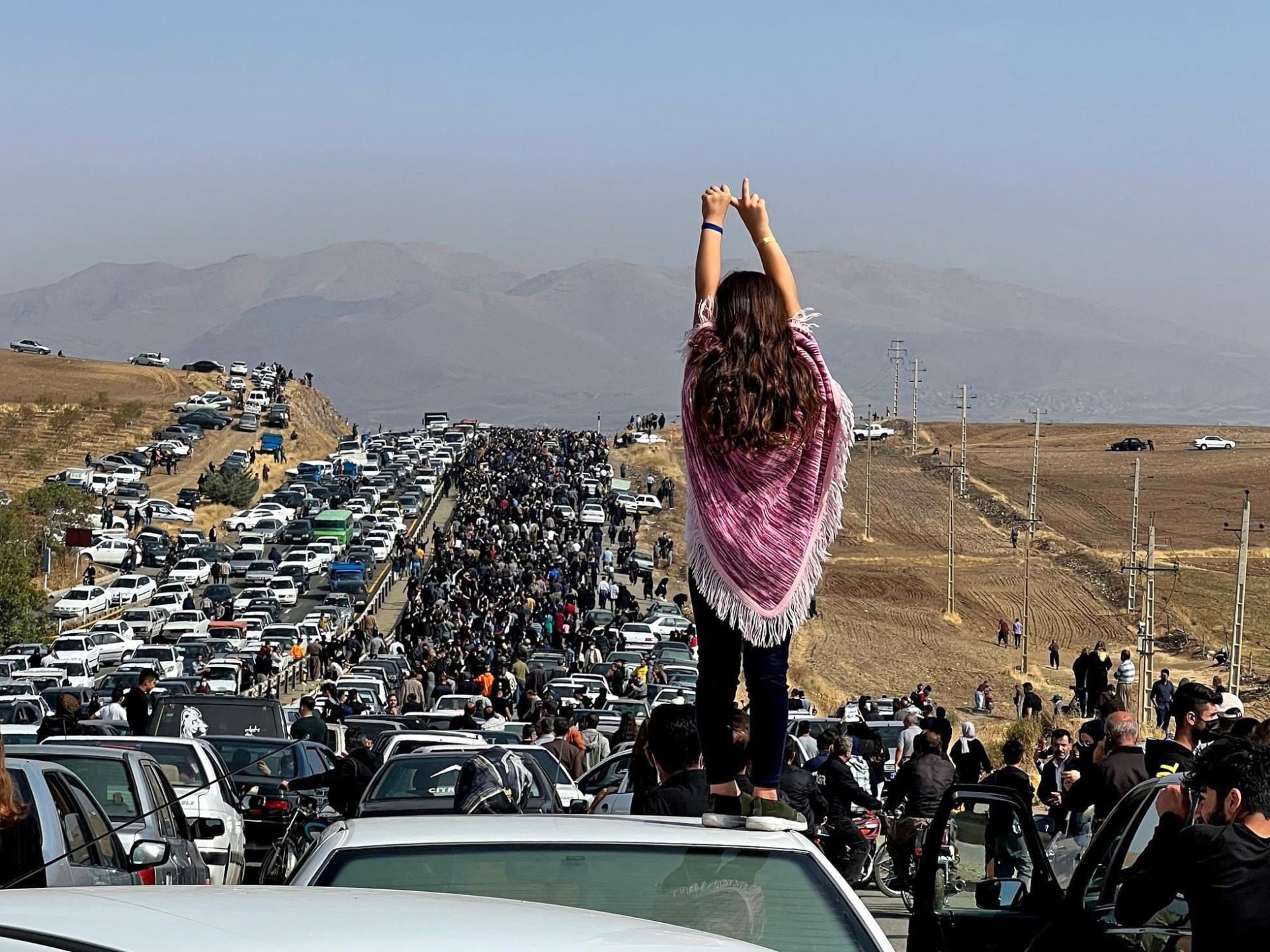The Iranian Ministry of Foreign Affairs announced its rejection of the decision of the United Nations Human Rights Council to establish an international fact-finding committee regarding the practices of the Iranian authorities during the protests that took place in several cities in the country during the past weeks, while there were reports of deaths and injuries during protests in the province of Sistan and Baluchestan.
And the ministry confirmed in a statement issued yesterday evening, Thursday, that the Islamic Republic opposes the special meeting of the Human Rights Council, and considers the decision issued by it "rejected," stressing that it "does not officially recognize the mission entrusted to it."
The Iranian Foreign Ministry added that the decision is based on false information and media infusion promoting violence in Iran, considering that it came under pressure from Western countries with the aim of securing their interests, and that it considers it a violation of the country's sovereignty.
The Iranian Foreign Ministry also described Germany's move to issue a resolution in the Human Rights Council as a historic mistake, and that it aims to achieve political goals.
It denounced "opportunistic tendencies and the exploitation of the issue of human rights as a tool by a certain group of countries."
The Ministry of Foreign Affairs pointed to "the existence of a specialized committee to investigate the death of Mrs. Mahsa Amini, and the existence of a national investigation committee composed of lawyers and with the participation of independent representatives."
And it considered that "the formation of any new mechanism to investigate the cases of the past two months in Iran is unnecessary and a violation of the country's national sovereignty, and it does not recognize the mission entrusted to it in this regard."
dead and wounded
On the other hand, Iranian security forces opened fire on demonstrators after Friday prayers in the province of Sistan and Baluchestan, which is witnessing unrest, killing and wounding dozens, according to activists.
Activists had called for demonstrations across the country this week in solidarity with the province of Kurdistan, which, along with Sistan and Baluchistan, suffers the most from the security crackdown that left the dead.
And official Iranian media reported today, Friday, that the Revolutionary Guard had strengthened its presence in troubled Kurdish areas as part of a campaign aimed at containing the protests, and a video clip showed dozens of people demonstrating in areas of the Baloch minority in the southwest.
The protests - sparked by the death of the young Kurdish woman, Mahsa Amini, on September 16, after she was detained by the morality police - quickly spread across the country, but are more intense in areas inhabited by ethnic minorities, most of whom are Sunnis.
State news agencies reported that more armored units and special forces of the Revolutionary Guards were on their way to border areas in the west and northwest, home to the Kurdish minority, after announcing earlier reinforcements on Sunday.
The semi-official Tasnim news agency published a picture of smiling commanders of the Revolutionary Guards riding a military vehicle and saluting a long line of troops.
Iran accuses Western countries of fueling the unrest, and accuses protesters in ethnic minority areas of working on behalf of separatist groups.

